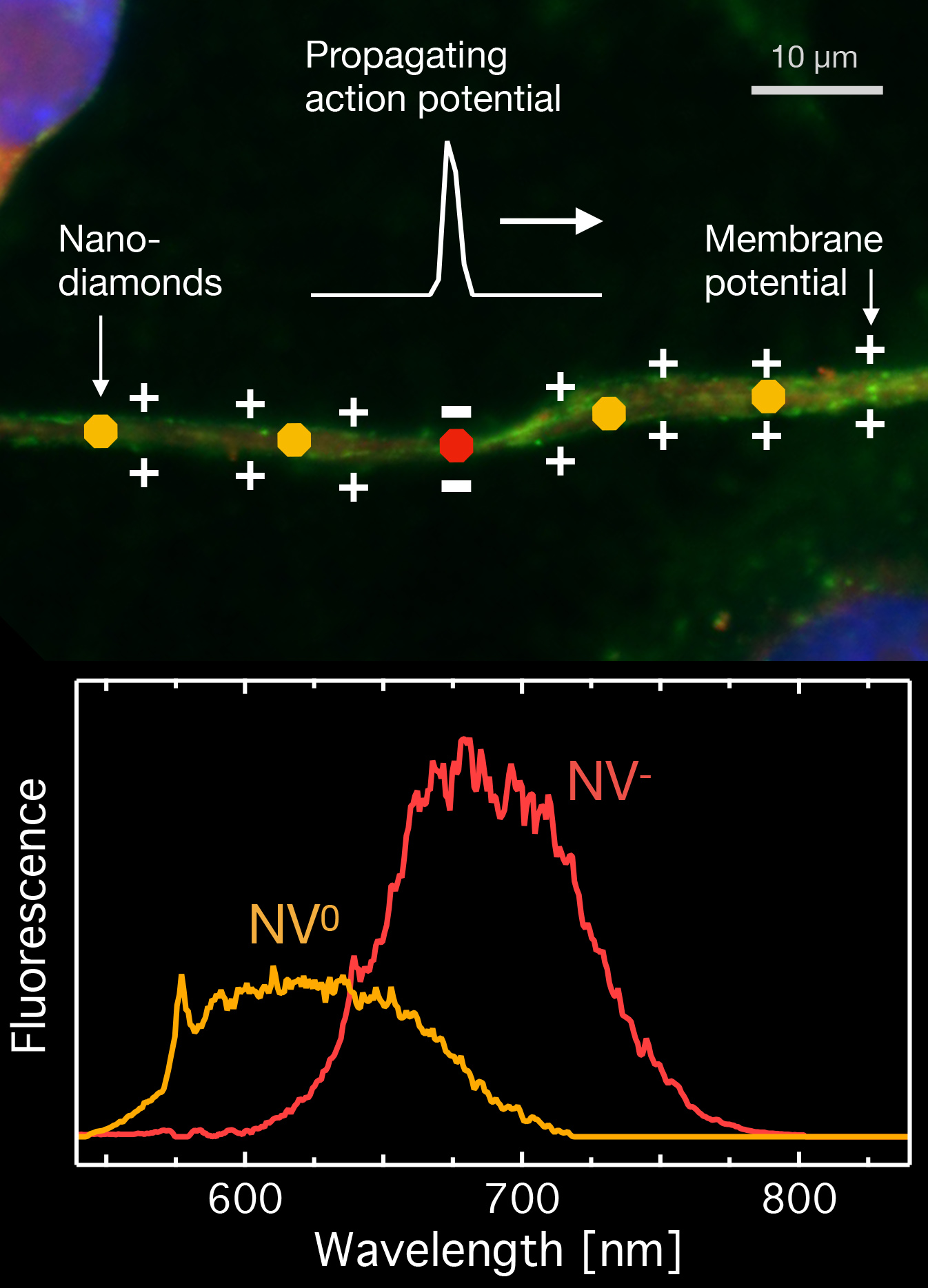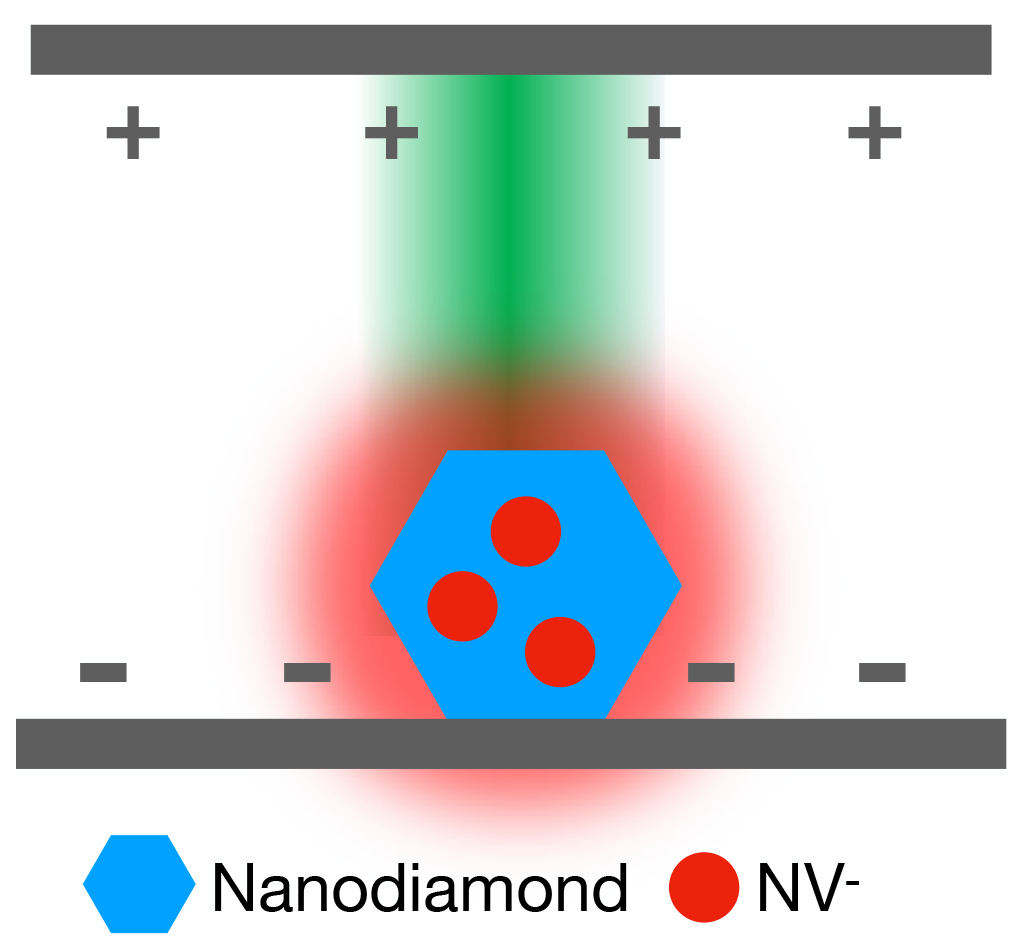This project aims to develop a next-generation nanoscale voltage sensor to address a fundamental challenge in biomedicine - measuring neuronal signals non-invasively in real-time and over hours.
 Figure 1. Imaging neuronal signals using fluorescence from the nitrogen-vacancy centre in nanodiamonds. Top: Illustration of an electric potential moving along a neuron. This potential causes a colour change in the fluorescence of the nanodiamond particles. Bottom: The fluorescence spectra associated with the two fluorescence colours.
Figure 1. Imaging neuronal signals using fluorescence from the nitrogen-vacancy centre in nanodiamonds. Top: Illustration of an electric potential moving along a neuron. This potential causes a colour change in the fluorescence of the nanodiamond particles. Bottom: The fluorescence spectra associated with the two fluorescence colours.
 Figure 2. Simplified illustration of an experimental setup to study the effect of external voltages on nanodiamond fluorescence.
Figure 2. Simplified illustration of an experimental setup to study the effect of external voltages on nanodiamond fluorescence.
Project title: A nanodiamond voltage sensor: towards real-time, long-term neuronal sensing
Project dates: Aug 2020 – July 2023
Grants and funding: ARC DECRA: DE200100279
Description
This project aims to develop a next-generation nanoscale voltage sensor to address a fundamental challenge in biomedicine - measuring neuronal signals non-invasively in real-time and over hours. The project will achieve this by creating a biocompatible, optical sensor based on nanodiamonds, that converts voltage to a simple fluorescence signal. It will enable fast, precise and reliable voltage measurements at the nanoscale, using standard fluorescence imaging equipment. The functionality of the fabricated sensor will be demonstrated in a cellular environment. This sensor has the potential to revolutionise our understanding of the origins of behaviour and sensation, and the mechanisms underlying neurodegenerative diseases like Alzheimer’s.
Research strategy
The strategy of the proposed project is to understand the properties of fluorescent defects in nanodiamonds and employ this knowledge to develop the materials and measurement techniques for a novel nanoscale voltage sensor.
Rationale
The brain is biology’s black-box and our understanding of the biological mechanisms underlying neurodegenerative diseases - one of the leading causes of disability and death worldwide - remains insufficient. The proposed voltage sensor will be able to visualise the smallest changes in neuronal signalling processes and thereby transform our understanding of the workings of the brain, the causes of disorders and potentially the development of treatments.
More broadly, the nanomaterials and sensing technologies developed throughout the proposed project, will benefit many emerging quantum sensing technologies and will be applicable in other fields from corrosion sensing to smart biomedical implants.
Key people
Dr Philipp Reineck, ARC Center for Nanoscale Biophotonics Team at RMIT, a PhD student to be recruited through an ARC funded position.
Associated journal publications
- DOI: 10.1002/adom.201600446
- DOI: 10.1021/acsnano.7b04647
- DOI: 10.1002/ppsc.201900009